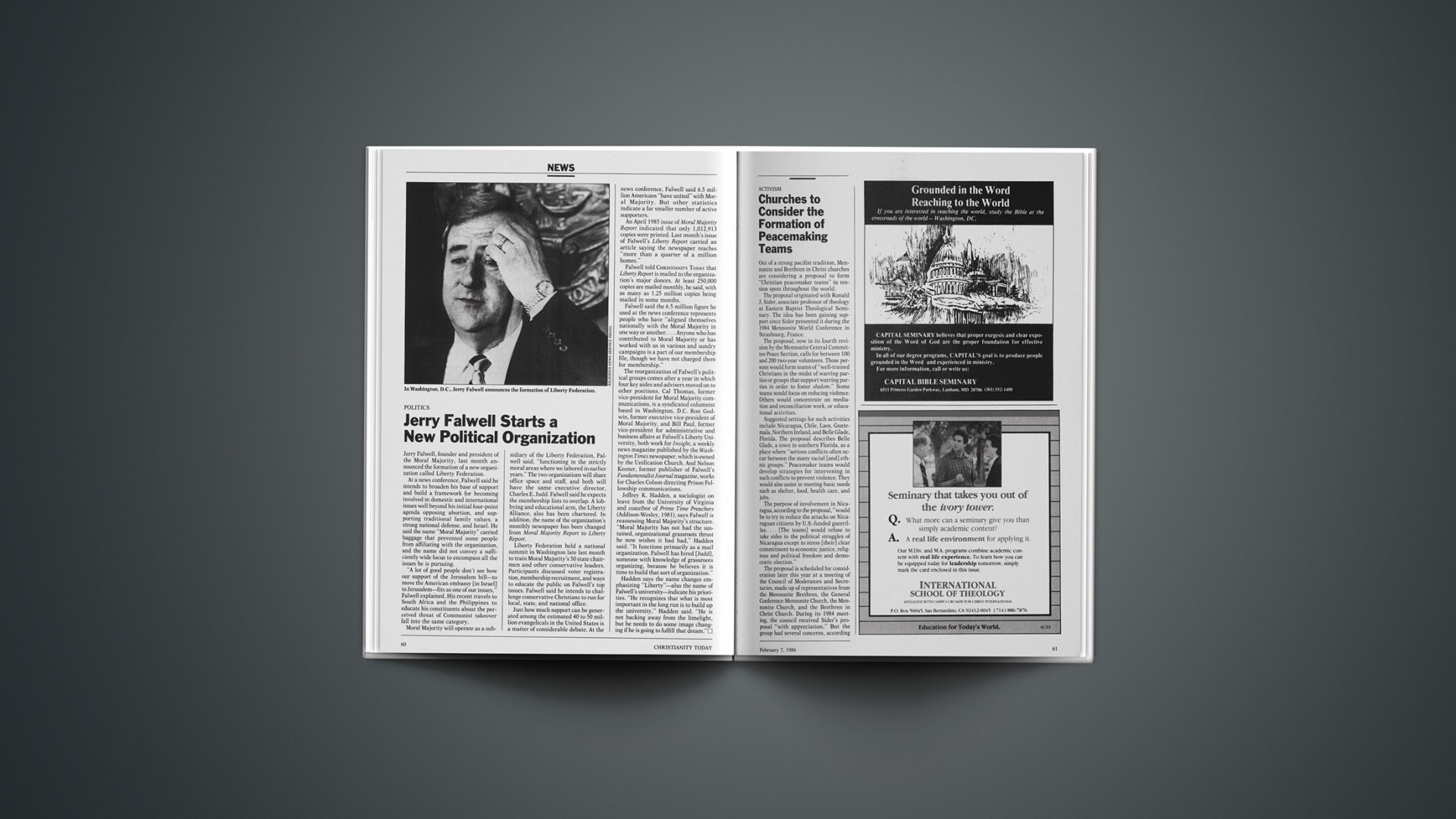Out of a strong pacifist tradition, Mennonite and Brethren in Christ churches are considering a proposal to form “Christian peacemaker teams” in tension spots throughout the world.
The proposal originated with Ronald J. Sider, associate professor of theology at Eastern Baptist Theological Seminary. The idea has been gaining support since Sider presented it during the 1984 Mennonite World Conference in Strasbourg, France.
The proposal, now in its fourth revision by the Mennonite Central Committee Peace Section, calls for between 100 and 200 two-year volunteers. Those persons would form teams of “well-trained Christians in the midst of warring parties or groups that support warring parties in order to foster shalom.” Some teams would focus on reducing violence. Others would concentrate on mediation and reconciliation work, or educational activities.
Suggested settings for such activities include Nicaragua, Chile, Laos, Guatemala, Northern Ireland, and Belle Glade, Florida. The proposal describes Belle Glade, a town in southern Florida, as a place where “serious conflicts often occur between the many racial [and] ethnic groups.” Peacemaker teams would develop strategies for intervening in such conflicts to prevent violence. They would also assist in meeting basic needs such as shelter, food, health care, and jobs.
The purpose of involvement in Nicaragua, according to the proposal, “would be to try to reduce the attacks on Nicaraguan citizens by U.S.-funded guerrillas.… [The teams] would refuse to take sides in the political struggles of Nicaragua except to stress [their] clear commitment to economic justice, religious and political freedom and democratic election.”
The proposal is scheduled for consideration later this year at a meeting of the Council of Moderators and Secretaries, made up of representatives from the Mennonite Brethren, the General Conference Mennonite Church, the Mennonite Church, and the Brethren in Christ Church. During its 1984 meeting, the council received Sider’s proposal “with appreciation.” But the group had several concerns, according to Myron Augsburger, former moderator of the Mennonite Church General Assembly.
“We wanted the proposal to be an expression of the international nature of the church and not tied to any political ideology,” Augsburger said. “We were committed to finding ways to witness to peace and nonviolence … that would not be mistaken as either anti-American policy or as an extension of nationalistic interests.”










